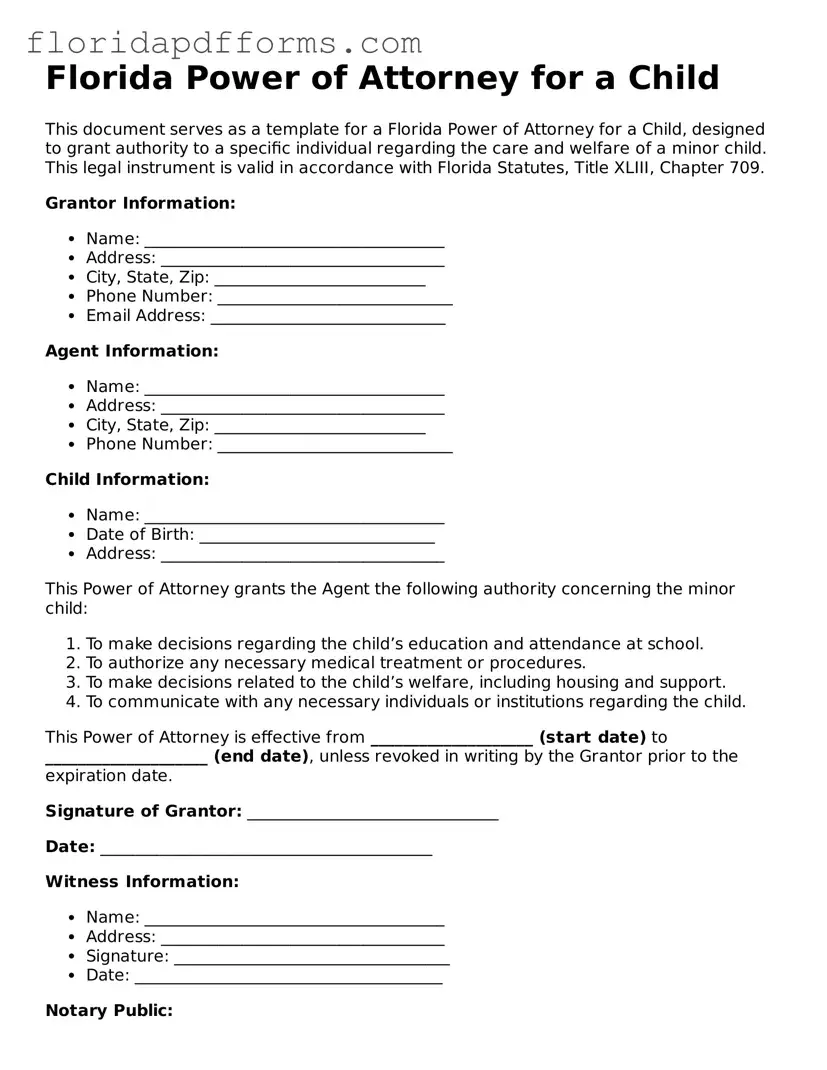Official Power of Attorney for a Child Template for Florida
The Florida Power of Attorney for a Child form is a legal document that allows a parent or guardian to designate another individual to make decisions on behalf of their child. This arrangement can be essential for various situations, such as temporary relocations or emergencies. To ensure that your child's needs are met, consider filling out the form by clicking the button below.
Modify Power of Attorney for a Child Now

Official Power of Attorney for a Child Template for Florida
Modify Power of Attorney for a Child Now

Modify Power of Attorney for a Child Now
or
⇓ Power of Attorney for a Child File
Don’t stop halfway through your form
Finish your Power of Attorney for a Child online with quick edits and instant download.